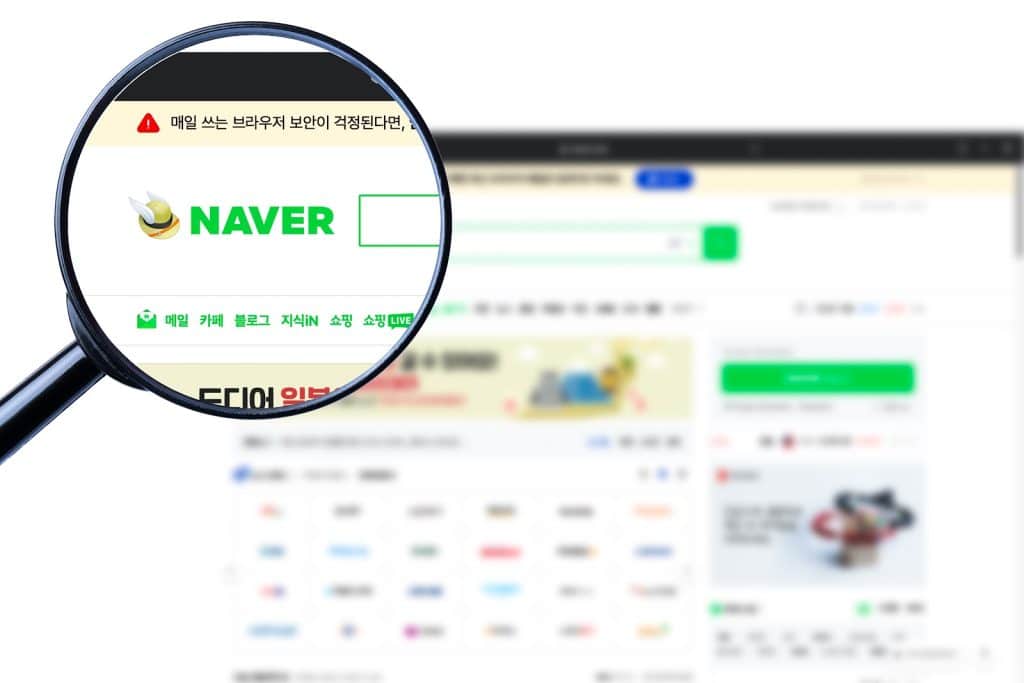Unlocking potential in the Ireland iGaming market
The Ireland iGaming market stands out as one of the fastest-growing sectors of the country’s betting and digital gaming industry. Driven by sports, casinos, and leisure, Ireland presents both opportunities and challenges for brands.
Whether you're entering the market or scaling, Ireland is a market that demands your attention. However, you need a clear map of the market pulse, the shifting licensing environment, and the rules that steer growth. Sharp SEO and digital moves can push your brand ahead in this tough industry.
Betting and iGaming in Ireland
The rise of online gambling Ireland marks a sharp shift in the nation’s betting and gaming scene. Fueled by sports and leisure entertainment, the casino space draws both opportunities and risks for gaming operators.
Here's a guide built for bookmakers, the online casinos, and every brand that seeks a stake in this competition:
Market size and segments
The Irish betting and iGaming scene adds weight to the economy, with a projected value of €2.5 billion in 2025, rising to €2.8 billion by 2029. While sports bets still lead, online gambling casinos now claim a big slice, set to reach 474,100 users by 2028. Lotteries keep their appeal, while emerging products like eSports and virtual games unlock fresh growth opportunities.
Online revenue, now at €1.17 billion, makes up 40% of the market, providing swift digital take-up. Annual growth of 2.24% shows resilience, even with regulatory strain. Key market trends point to mobile gaming, demand for custom play, and rule changes that steer investment plans. However, rising market competitiveness forces firms to push new promotions, tech, and user experience.
Operators looking to enter the market or grow their presence need sharp, well-defined strategies. At the core lies identifying who the target audience is. By pinpointing demand drivers, platforms can tailor offers, optimise promotions, and deploy resources efficiently. This focus allows brands to stand out, foster loyalty, and sustain growth even as competition intensifies and regulations tighten.

Player demographics
Player demographics in Ireland show a varied end user based on age group, gender, and regional patterns. About 49% of adults gambled in 2024, with men (51.3%) slightly ahead of women (46.8%). Around 30% of younger adults aged 18 to 24 gamble, mostly favouring digital gameplay. Adults aged 35 to 64 join more at over 55%, often choosing lotteries and bingo.
Gender also shapes player habits. Men spend significantly more, averaging €278 a year, compared to €84 for women. This gap highlights clear consumer behaviour trends. Through in-depth analysis, gaming operators can refine brand positioning and optimise marketing. Tailoring offers to lifestyle, game type preferences, and regional trends creates stronger engagement and drives sustainable growth.
Regulation of the Irish betting market
The regulation of Ireland’s betting operations is run by the Gambling Regulatory Authority of Ireland. Operators must show stability, expertise, and compliance with responsible gambling requirements, including consumer protection and getting consent from all players. Regulatory compliance affects every move, from market entry to daily operations and ads.
Here are compliance factors to consider:
Gambling Regulation Act 2024
The Gambling Regulation Act 2024 sets a modern path for the online gambling Ireland scene. It updates outdated laws and establishes the Gambling Regulatory Authority of Ireland (GRAI) as the primary regulator.
It lays out clear licence and operational requirements for all operators, from gaming and betting to lotteries and charity gambling. Every provider must hold the right licence to run legally, including online gambling. The law includes strict ad limits, mandates responsible gaming, and enforces self-exclusion as well as safety rules to guard vulnerable players.
The law also sets firm enforcement measures: the authority can revoke licences, fine operators, and block unlicensed activity. This legislation builds a safe, clear gambling space while backing steady growth.
Regulatory impact on operators
Irish laws impact every operator in the iGaming and betting industry. The licensing process requires firms to show financial stability, expertise, and compliance with industry standards, adding cost and admin work. Strict tax rules and clear payment processing shape the platform’s planning and income. The authority also requires firms to submit reports on revenue, player activity, and operational requirements. Ads must be monitored, while self-exclusion and risk management are required to protect players.
These rules guide design, campaigns, and user engagement. While tight oversight adds work, it earns trust. Brands with strong compliance frameworks succeed in the Ireland iGaming market in the long run.

Player insights and tech trends in Ireland

In Ireland, shifting player behaviour and fast tech adoption are changing the iGaming experience. Expert views highlight mobile gameplay, personal offers, and social gaming as the main engagement drivers. Operators can use insight from usage data and gaming trends to improve products and stay ahead. Regular updates on player choices, spending, and new platforms help anticipate shifts and tweak strategies.
To match offers with users' preferences, it's important to learn current trends, such as:
Mobile-first betting growth
The rise of mobile device usage in the Ireland iGaming market shows a clear shift in how players engage, driven by speedy internet. Players now bet on sports, live casino, poker, and esports on the go, demanding smooth design and easy interfaces. Operators increasingly focus on how game design shapes player behaviour. Layouts, rewards, and flow can influence playing time, spending, and repeat visits. Small tweaks can drive big shifts, making design a key factor in long-term results.
Operators must ensure strong responsiveness, so platforms work on all screens and systems. Real-time gameplay needs solid tech and ongoing investment to keep speed, safety, and uptime high. Likewise, payments must be quick and work with digital wallets. Marketing should push alerts, personal offers, and local deals. This will help you move ahead fast in Ireland’s iGaming scene.
Betting preferences in Ireland
Irish players show a clear preference that shapes products and promotions. In sports, football, rugby, and horse racing lead, with varied bet types like singles, multiples, and live bets. On the casino side, slots with high RTP and new mechanics are top picks, while live dealer games add rich play.
Strong collaboration between local bookmakers and game providers drives unique promotions, competitive odds, and community-focused features. Operators focus on smooth, safe payments, like e-wallets and crypto. Reading these patterns shapes products, messaging, and user experience. Match offers to players and local ties, and watch as loyalty grows.
Cultural factors driving the market
Ireland’s iGaming and betting landscape is shaped by strong local culture and social habits. Deep sports culture, including football, rugby, and horse racing, drives regular gaming online and in live venues. Community events and local competitions make betting a social pastime, while seasonal betting trends like major tournaments boost predictable peaks in activity.
Players follow results and news across media, social platforms, and local channels, boosting engagement and interest. The authority also oversees fair and safe gameplay, ensuring player protection and market integrity. With this, brands that adapt to local habits can create promotions and events that connect strongly with Irish players.
SEO strategies for the Irish betting market

Tying search engine optimisation (SEO) into a full marketing strategy ensures all efforts work together, helping capture and keep players in Ireland’s iGaming market. Effective iGaming SEO in Ireland requires a smart mix of marketing and local focus. Operators should boost website content with Irish SEO keywords while following rules and advertising standards. Building brand trust through quality links, expert content, and forum engagement grows web traffic and recognition.
Companies can leverage several strategies, including:
Keyword targeting and localisation
Irish players rely on mobile search and digital platforms to find betting and gaming services. Tracking search patterns helps operators spot opportunities in niche sports, casino formats, and seasonal events.
Cultural context, local connections, and regional interests strongly influence search behaviour. By leveraging real-time market insights, operators can adapt to trends, attract more players, and strengthen retention.
Here are key strategies to consider:
- Keyword research and demography: Target high-value keywords and map them based on demography, including age, region, and player type, to align content with engagement patterns.
- Regional spelling and terms: Use correct regional spelling and familiar terminology to make content readable, credible, and culturally aligned for Irish players.
- Language nuances: Apply language nuances in tone, phrasing, and idioms. Proper localisation ensures content feels authentic and culturally relevant.
- Market insights and personalisation: Leverage market insights to segment audiences. Personalisation tailors content and promotions to player habits, sports interests, and favourite games.
- Local reach and citations: Keep name, address, and phone number (NAP) data consistent across directories, social media, and websites. Proper citations improve SEO, credibility, and local reach in iGaming Ireland.

Content strategy
A strong content strategy in the Irish iGaming market starts with knowing how players consume information. Mobile use, search habits, and culture shape what formats work best. Players rely on digital sources for betting tips, casino insights, and iGaming industry news on sports.
Content must engage users while staying responsible and legal. Tap local trends, seasons, and platform tweaks to boost traffic, loyalty, and SEO authority.
You can improve your content with strategies, such as:
- Blog development: A blog provides a space for deep dives into betting strategies, casino mechanics, and sports previews. Local keywords and news attract traffic. Clear headings, calls-to-action, and internal links improve SEO and readability.
- Guides and educational content: Guides teach sports bet types, online casino rules, and responsible gambling. Step-by-step examples and scenarios boost usability. Cross-linking with other content also keeps players engaged longer.
- Articles and evergreen resources: Standalone article content on horse racing, football stats, or slot RTP comparisons provides ongoing value. Updates and structured metadata keep it visible in local search.
- SEO content ideas: Track trends, competitors, and seasonal patterns to generate iGaming content ideas. Topics include event previews, payment options, and player behaviour. High-intent keywords can also increase conversions.
- iGaming industry news integration: Cover iGaming industry news regularly to build authority. Updates on licensing, regulation, or market growth build trust. Use expert commentary to add differentiation.
- Personalisation and local relevance: Shape content with local words, player stories, and community cues. Personal touches improve gameplay, build trust, and guide product recommendations.
Technical SEO
The Ireland iGaming market blends local brands, global rivals, and AI tools. Fast sites, strong links, and smooth mobile design give a clear edge. Players expect instant access to live bets, casino games, and payment systems, so user experience affects retention and conversions. Technical SEO helps search engines index and rank sites while keeping the experience smooth. Focusing on these elements boosts organic traffic and keeps operators competitive.
Here are some technical SEO tips you can follow:
- Site speed optimisation: Site speed optimisation is vital for rankings and smooth gameplay. Optimise images, use caching, and cut unnecessary code. Fast pages retain players and improve engagement.
- Mobile optimisation: Mobile-first design is key. Responsive layouts, touch-ready buttons, and fast interactive tools reduce bounce rates and keep users engaged longer.
- Structured data implementation: Use structured data like schema markup for rich results, event listings, and game previews. This helps search engines understand content and improves local relevance.
- Sitemap maintenance: Efficient crawlability ensures engines index all key pages. Check sitemap errors, broken links, and redirects. Updated sitemaps enable faster indexing and fix issues early.
- User experience and error management: Technical glitches like 404 pages, broken forms, or slow scripts hurt user experience. Monitoring tools, logs, and alerts maintain uptime and trust.
Backlink and authority building

Brand credibility depends on more than content and SEO. It needs real online authority. Players trust platforms cited by credible sources, and search engines reward sites with quality backlinks. Building digital credibility involves strategic partnerships, media engagement, and targeted outreach.
Compliant strategies are essential due to regulations. Operators using smart collaborations, partnerships, and influencers can drive traffic, improve rankings, and signal trust to players and search engines. However, brands must stay alert to influencer marketing risks, including reputational damage, regulatory breaches, or inconsistent messaging that could harm brand credibility. Safe partnerships and lasting growth depend on rigorous vetting and clear, consistent rules.
The following tips can help improve authority:
- Partnerships for link acquisition: Strategic partnerships with local businesses, sports clubs, and events create organic links to relevant content. Co-branded campaigns and sponsorships boost exposure and credibility.
- Local media engagement: Engage media outlets with news, insights, or sports analysis. Media coverage builds trust, drives referral traffic, and strengthens authority.
- Influencer collaborations: Work with niche influencers for mentions, reviews, or guest posts. Proper selection ensures compliance and aligns messaging with your brand.
- Targeted outreach campaigns: Conduct structured outreach to high-quality Irish sites, forums, and blogs. Personalised messages and value-driven proposals increase the chance of securing links.
- Industry collaborations: Work with other iGaming brands through research, events, or reports. This builds trusted links, joint content, and lasting SEO strength.
Responsible gambling messaging
Success in Ireland’s iGaming market comes from understanding player behaviour and following rules. Operators must balance digital growth with responsible gambling Ireland practices while adapting to cultural and seasonal trends. While local SEO improves visibility, trust is still the key to lasting growth.
Here’s how responsible gambling messaging boosts long-term gains:
- Compliance and responsible operations: Age checks, self-exclusion, secure payments, and clear warnings, alerts, as well as support, reduce risk. Respecting limits and ensuring safety and protection builds credibility. In contrast, non-compliance often leads to fines, licence loss, or reputational harm.
- Player-centric marketing: Watch player habits to create targeted campaigns. Tailored messages on sports, casino games, or seasons boost loyalty and conversion. Local culture is key to adding weight and impact.
- Cultural alignment and seasonal trends: Ireland’s strong sports and betting culture fuels peak activity during major events such as horse racing festivals and football seasons. Plan campaigns around these seasonal betting trends to increase engagement and loyalty.
- Digital and SEO strategy: Combine content, technical SEO, and trust-building. Fast sites, structured data, and strong backlinks boost credibility and enhance search visibility. To boost these efforts, brands must ensure effective backlink indexing. Proper recognition by search engines drives authority, improves rankings, and boosts long-term visibility.
- Long-term growth opportunities: Prioritise fair play and safe gambling. Skip risky tactics that hurt players. Teach, improve, and protect users to grow loyalty and lead the market.

Strategic insights for iGaming operators in Ireland

The rise of mobile-first platforms and personalised marketing is shifting digital entertainment. Operators rely on data-driven insights, seamless user experience, and compliance to reach engaged players. These trends shape strategy in Ireland, where culture, player habits, and regulation demand localised strategies.
To create an effective strategy, consider the key insights here:
- Compliance-driven growth: Sticking to iGaming Ireland’s rules avoids costly fines or licence loss. Smart ads, player protection, and safe gambling build trust and steady growth.
- Player insights and personalisation: Track player age, habits, and seasonal trends to craft sharp campaigns. Tailored content, deals, and mobile access drive engagement and establish loyalty.
- Cultural alignment: Integrate Irish sports, local habits, and betting traditions into campaigns to stay relevant. Strengthen reach by partnering with media outlets, influencers, and review platforms.
- Integrated digital strategy: Merging SEO, content, authority-building, and mobile design improves discoverability. Data-driven insights and ethical practices secure growth, loyalty, and lasting market share.

Unlock your Irish iGaming potential with QWERTYLABS
The Irish iGaming market is fast-changing. Operators must blend regulatory compliance, cultural insight, and smart digital strategy to succeed. Using Irish SEO best practices boosts visibility, engagement, and long-term growth.
Partnering with experts like QWERTYLABS can help you spot trends, sharpen content, and gain trust quickly. Strategic, data-driven action keeps users hooked and drives SEO Ireland growth. Mix compliance, market insight, and intelligent campaigns to transform data into measurable action. As you boost returns and build trust, your brand can get a foothold in Ireland’s fierce iGaming scene.
FAQs
Gain further clarity about SEO Ireland. Here are quick answers to kickstart your Irish localisation journey:
Is online gambling legal in Ireland?
Yes, online gambling is legal and regulated under the Gambling Regulation Act 2024.
Do operators need a licence to offer iGaming in Ireland?
Yes, all operators must obtain a licence from the Gambling Regulatory Authority of Ireland (GRAI).
Is sports betting popular in Ireland?
Yes, sports betting in Ireland is very popular, particularly horse racing, Gaelic games, and football.
Do SEO strategies help iGaming operators compete in Ireland?
Yes, tailored SEO boosts visibility, authority, and compliance in the Irish market.
Is localisation important for SEO in Ireland?
Yes, using Irish English, regional terms, and culturally relevant content improves local reach.














































